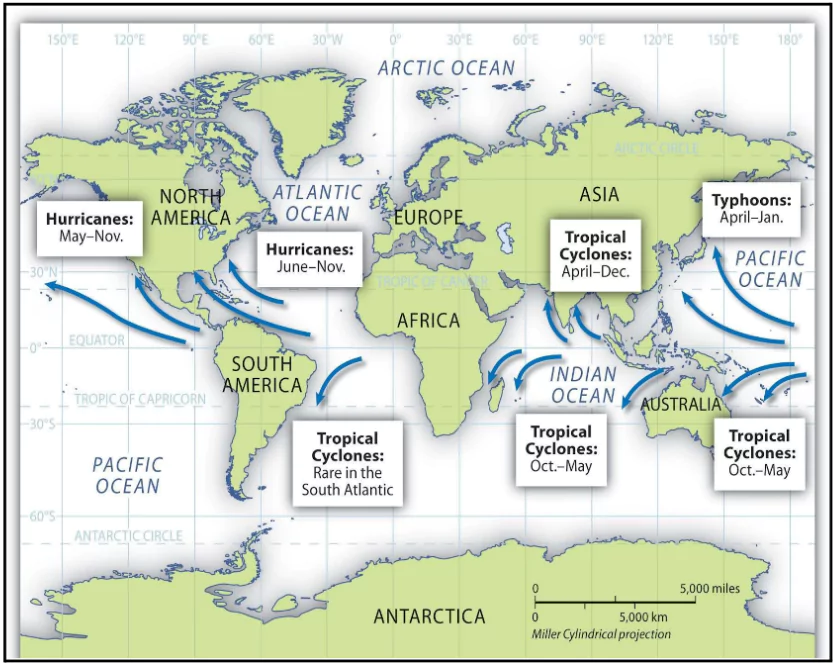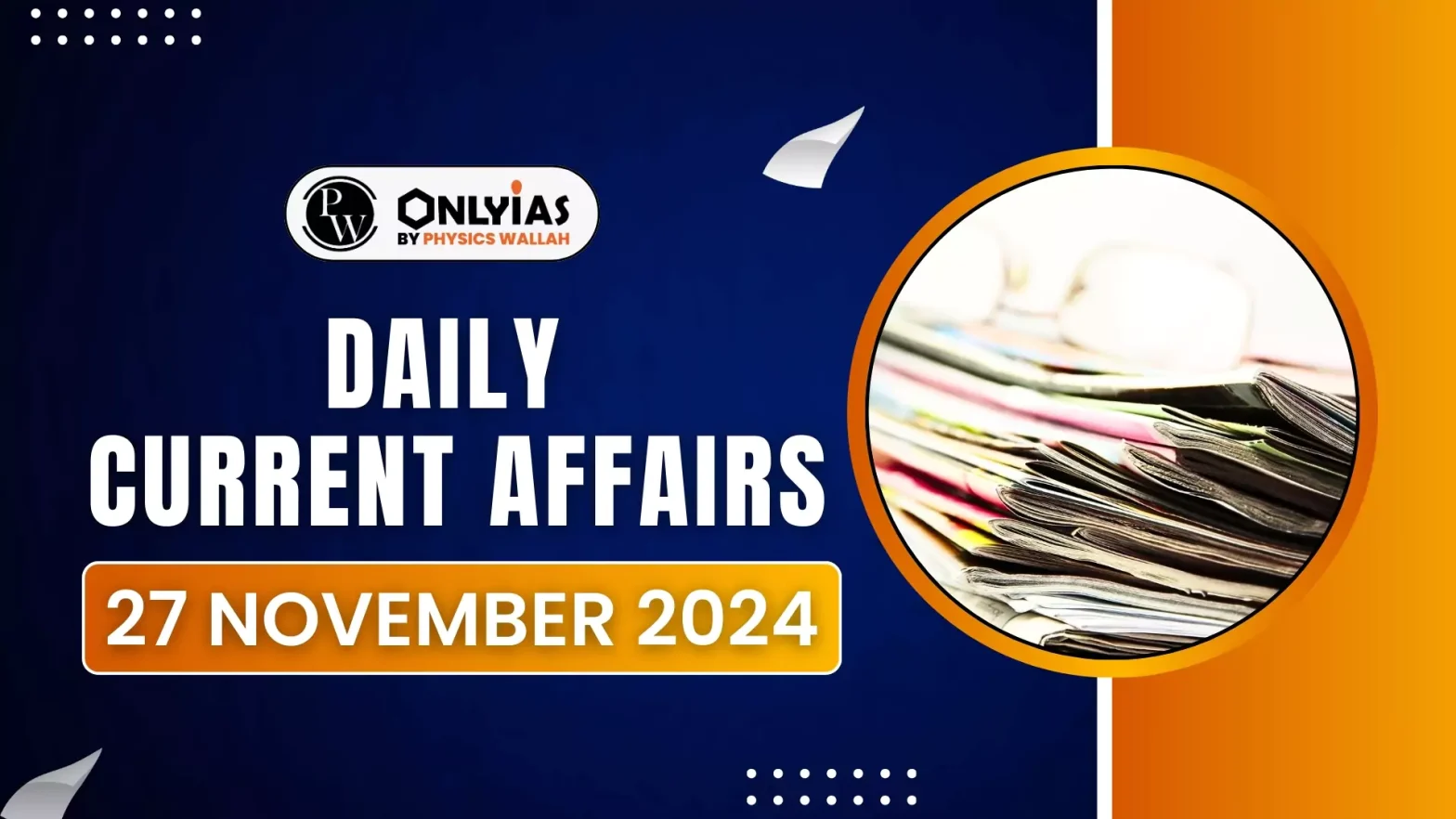The India Meteorological Department (IMD) announced the likely intensification of the existing deep depression into a cyclone and the chances of the storm hitting the Tamil Nadu coast.
Current Status of Cyclone Fengal
- A low-pressure area over the East Equatorial Indian Ocean and the Southeast Bay of Bengal has developed into a deep depression as of November 26, 2024.
Enroll now for UPSC Online Course
Worldwide Terminology of Tropical Cyclones
- Typhoons: Occur in the China Sea and the Pacific Ocean.
- It commonly affects countries in East and Southeast Asia, including Japan, China, and the Philippines.
- Hurricanes: Found in the West Indian Islands of the Caribbean Sea and the Atlantic Ocean.
- Impact regions like the United States, Mexico, and Caribbean nations.
- Tornadoes: Occur in the Guinea Lands of West Africa and the Southern USA.
- Characterized by rapidly rotating columns of air extending from thunderstorms.
- Willy-willies: Term used in Northwestern Australia for tropical cyclones.
- Known for causing heavy rainfall and strong winds in the region
|
- The India Meteorological Department (IMD) predicts it may strengthen into a cyclonic storm by November 27, 2024.
- The cyclone is expected to bring strong winds, heavy rainfall, and potential coastal flooding to regions along the Bay of Bengal, particularly in coastal Tamil Nadu, from November 26 to 30.
Naming of Cyclone Fengal
- If the deep depression intensifies into a cyclone, it will be named Fengal.
- Name Origin:
- Proposed by: Saudi Arabia.
- Rooted in Arabic, reflecting regional linguistic and cultural identity.
- Cyclone names are chosen to be short, distinctive, and universally non-offensive.
Check Out UPSC CSE Books From PW Store

Cyclone Naming System
- Panel Members: Cyclones in the North Indian Ocean are named by a panel of 13 countries under the World Meteorological Organization (WMO) and United Nations Economic and Social Commission for Asia and the Pacific (UNESCAP).
- Member countries include Bangladesh, India, Iran, Maldives, Myanmar, Oman, Pakistan, Qatar, Saudi Arabia, Sri Lanka, Thailand, the UAE, and Yemen.
- Process: Each member submits a list of 13 names, creating a rotational naming system. Names are assigned sequentially as cyclones form. Once used, a name is retired and not reused. Current List: Following Fengal, the next cyclone will be named Shakhti (contributed by Sri Lanka), with Montha (from Thailand) as another upcoming name.
World Meteorological Organization (WMO)
- Origin: Established in 1950, WMO originated from the International Meteorological Organization (IMO) founded in 1873.
- Headquarters: Geneva, Switzerland.
- Objective: WMO facilitates international cooperation on weather, climate, hydrology, and related geophysical sciences. It promotes the exchange of data, information, and research among member countries.
|
Cyclones in the Arabian Sea vs. Bay of Bengal
- Cyclones in the Arabian Sea are less frequent than in the Bay of Bengal due to differences in sea surface temperature, wind patterns, and geographical factors.
- The Bay of Bengal experiences more favorable conditions for cyclone formation, including warm waters and lower vertical wind shear.
Enroll now for UPSC Online Classes
Preparedness and Monitoring
- Regional meteorological centers are closely monitoring Cyclone Fengal’s development, trajectory, and potential impact.
- Residents in affected areas are advised to stay updated through official sources and take precautionary measures to mitigate potential risks.
Additional Reading: Tropical Cyclone
![]() 27 Nov 2024
27 Nov 2024


